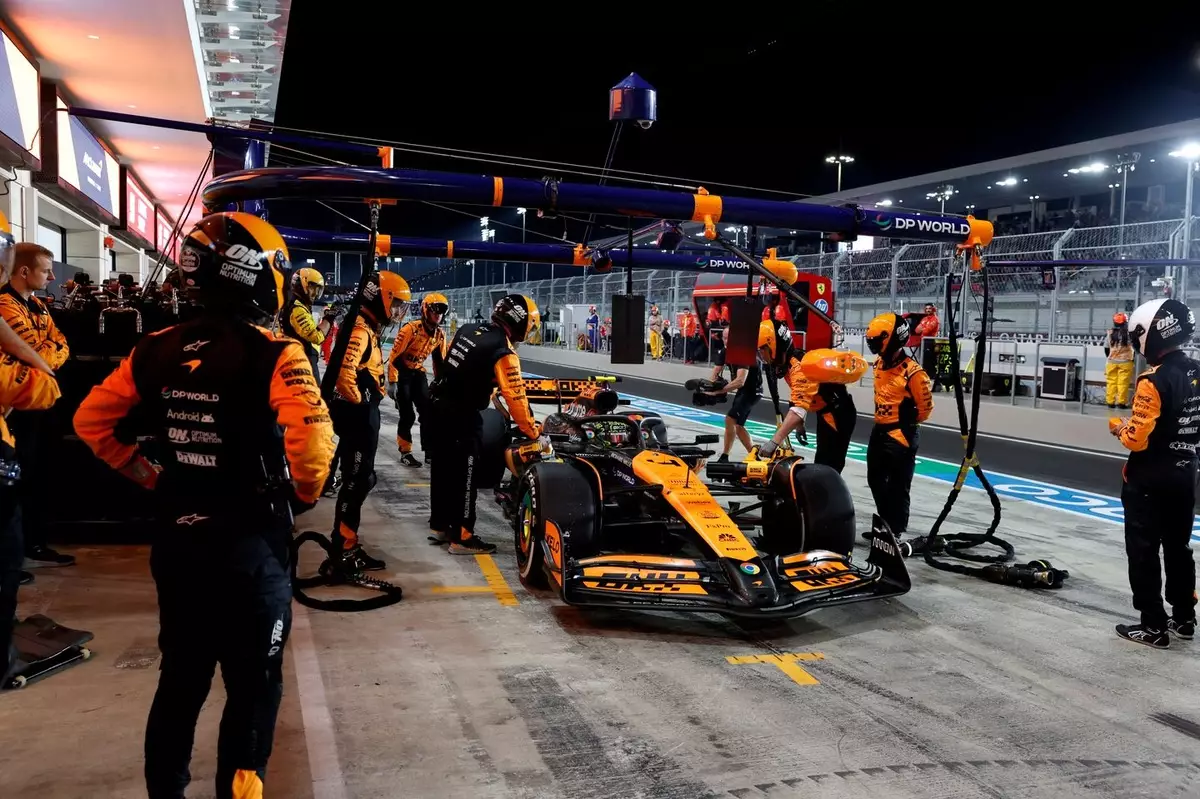In the relentless world of Formula 1 racing, where milliseconds can define a winner, the impact of race penalties on championship standings has become a focal point of controversy. Recent remarks from McLaren regarding Lando Norris’s stop-go penalty during the Qatar Grand Prix have reignited discussions on the necessity for the FIA (Fédération Internationale de l’Automobile) to reevaluate its penalty system. This call for reform isn’t just an isolated appeal; it highlights a broader concern within the racing community regarding penalty execution, consistency, and fairness.
The Incident and Its Implications
During the Qatar Grand Prix, Lando Norris received a 10-second stop-go penalty for failing to slow down in compliance with double yellow flags. While several teams, including McLaren, acknowledged that Norris did breach the rules, they assert that the severity of the punishment was disproportionate to the infraction. Andrea Stella, the team principal of McLaren, expressed alarm over the potential “consequences” this situation may have—not only for Norris but for the championship at large. Given the high stakes involved in Formula 1, the implications of such penalties can ripple throughout the season, potentially altering the trajectory of the championship race.
Stella articulated a fundamental concern: the lack of appropriate specificity and proportionality in the application of penalties. This vagueness in enforcement can lead to inconsistent results, damaging the sport’s integrity and the teams’ commitment to fair competition. In his statements following the race, Stella noted the importance of maintaining a balanced and fair racing environment, insisting that the FIA should carefully consider the implications of their harshest penalties.
The world of Formula 1 thrives on its stringent regulations, yet there is a growing sentiment among teams that the application of these rules often lacks the consistency needed to ensure a fair competitive landscape. Alongside McLaren’s frustrations, other team principals, such as Mercedes’ Toto Wolff, echoed similar sentiments regarding severe penalties during the Qatar GP. Wolff characterized certain sanctions as “brutal,” specifically highlighting their potential effects on championship outcomes.
This pattern of punitive measures raises an urgent question: How can such severe penalties coexist with the sport’s commitment to equity? The FIA’s regulatory framework must evolve to include a system that assures teams and drivers that decisions will be made with consistency and consideration of the broader competitive context.
While the FIA is expected to oversee and implement rules impartially, McLaren suggests that the organization reflects on its internal processes and potentially considers reforming how penalties are determined. In discussing the issue, Stella posited that there may be outdated protocols at play—perhaps no more relevant than a “dusty book” of regulations brought out haphazardly during race incidents. For progress to be made, the FIA must take a proactive approach, allowing insights from racing teams to inform future decisions.
Instead of looking backwards to change an individual case, Stella urges for a comprehensive review of how penalties are enacted across the board. The current approach has shown that drivers’ and teams’ futures can hinge on a single decision made in the heat of competition, which may not always consider the unique circumstances of each incident.
As Formula 1 evolves, the need for a fair and principled system of penalties grows more urgent. It’s critical that the FIA not only acknowledges the concerns demonstrated by teams like McLaren and Mercedes but takes meaningful steps toward reforming its regulatory practices. Ensuring that penalties align proportionately with infractions will preserve the sanctity of the competition and uphold the integrity of one of the world’s most prestigious motorsports.
The call for a systematic review of penalty policies is not just about correcting past mistakes; it’s about fostering a future where every team and driver engages in competition under the banner of fairness. The ball is now in the FIA’s court, and how they respond will shape the landscape of Formula 1 for years to come. The sport’s commitment to fairness is not only vital for maintaining its credibility but also essential for upholding the passion and dedication exhibited by teams and drivers alike.

